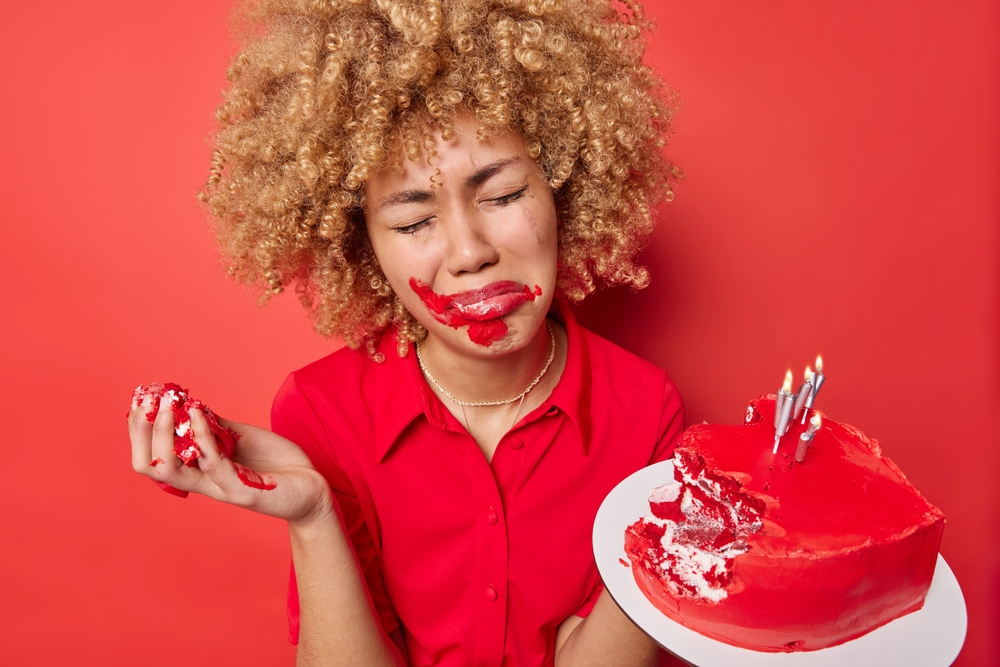
If you’ve ever asked yourself, “Why doesn’t anyone love me?” you’re not alone. It’s a painful question that can spiral into self-doubt, especially after a string of disappointing relationships. But what if the issue isn’t your worth, but your choices? Many people unknowingly repeat patterns that lead them to emotionally unavailable or incompatible partners. Let’s talk about what causes people to feel unlovable, along with seven things you might be doing to yourself that ultimately make you feel this way.
Causes of Feeling Unlovable
Someone might think they are unlovable for a wide range of reasons. These include:
- Depression
- Attachment issues
- Abuse
- Trauma
- Low self-esteem
- Borderline personality disorder
However, not everything is tied to a mental disorder. It could be about the people you are surrounding yourself with. As one wise person on Reddit pointed out, no one is born hating themselves. A lot of the time, there are some things that you can look at in your life that can explain why you’re feeling like you can’t be loved. Here are seven examples of just that.
1. You Mistake Chemistry for Compatibility
That electric spark can feel like destiny, but it’s often just familiarity. We’re drawn to what we know, even if what we know isn’t healthy. If you grew up around chaos or emotional distance, intense chemistry might feel like home. But compatibility is about shared values, emotional safety, and mutual respect. Learning to recognize the difference is the first step toward healthier love.
2. You’re Attracted to Emotionally Unavailable People
It’s easy to fall for someone mysterious, aloof, or hard to reach. But emotional unavailability often signals deeper issues, like fear of intimacy or unresolved trauma. When you chase someone who can’t fully show up, it reinforces the belief that you’re unlovable. The truth is, their inability to connect isn’t about you. Choosing partners who are ready and willing to love changes the narrative entirely.
3. You Confuse Caretaking with Connection
If you find yourself constantly fixing, rescuing, or over-giving, you might be mistaking effort for intimacy. Some people feel valuable only when they’re needed, not when they’re cherished. This dynamic can lead to burnout and resentment, especially when the care isn’t reciprocated. Real love doesn’t require you to earn it through sacrifice. Choosing someone who meets you halfway is a game-changer.
4. You Ignore Red Flags Because You Want It to Work
Hope is powerful, but it can also be blinding. When you’re desperate for love, you might overlook warning signs like inconsistency, disrespect, or lack of empathy. You tell yourself things will improve, or that you’re just being too sensitive. But ignoring red flags often leads to heartbreak and reinforces feelings of rejection. Choosing to walk away early protects your peace and affirms your worth.
5. You Repeat Familiar Patterns from Childhood
Our earliest relationships shape how we seek love as adults. If love was conditional, chaotic, or absent growing up, you might unconsciously recreate those dynamics. It’s not your fault, but it is your responsibility to break the cycle. Therapy, journaling, and self-reflection can help you rewrite your emotional blueprint. Choosing differently starts with understanding where your patterns come from.
6. You Settle Because You Don’t Believe You Deserve More
Low self-worth can lead to settling for less than you need or want. You might stay in relationships that feel “good enough” or convince yourself that your standards are too high. But love should feel safe, fulfilling, and mutual, not like a compromise of your core needs. The belief that you’re unlovable often stems from past wounds, not present reality. Choosing partners who reflect your true value helps heal that belief.
7. You Rush Into Relationships Without Vetting Compatibility
Rushing into relationships can be a recipe for disaster. Fast starts might feel exciting, but you often shrug off compatibility altogether. When you’re focused on diving in headfirst into the “good feels” of a new relationship, you can miss signs of misalignment of goals, communication styles, or emotional maturity. You need to take time to get to know someone on a deeper level. Being patient will ultimately protect your heart and keep you from feeling like you are unlovable.
You’re Not Unlovable
Feeling unlovable is often a symptom, not a truth. It’s the result of repeated disappointment, not a reflection of your worth. When you start choosing partners who are emotionally available, respectful, and aligned with your values, everything shifts. You begin to experience love that feels safe, reciprocal, and real. And that’s when you realize that you were lovable all along.
Have you ever felt unlovable because of who you’ve chosen to love? What patterns have you noticed, and how are you breaking them? Share your story in the comments.
What to Read Next
- When Love Feels Like Maintenance Do These 5 Things
- 10 Love “Tests” That Always Backfire in the End
- 10 Ways Love Turns Toxic Without Either Person Realizing
- How Trust Erodes in Love the Same Way Rust Spreads in Steel
- How Grudges Function Like Engine Sludge in Love
The post Are You Unlovable—or Just Choosing the Wrong People? appeared first on Clever Dude Personal Finance & Money.







